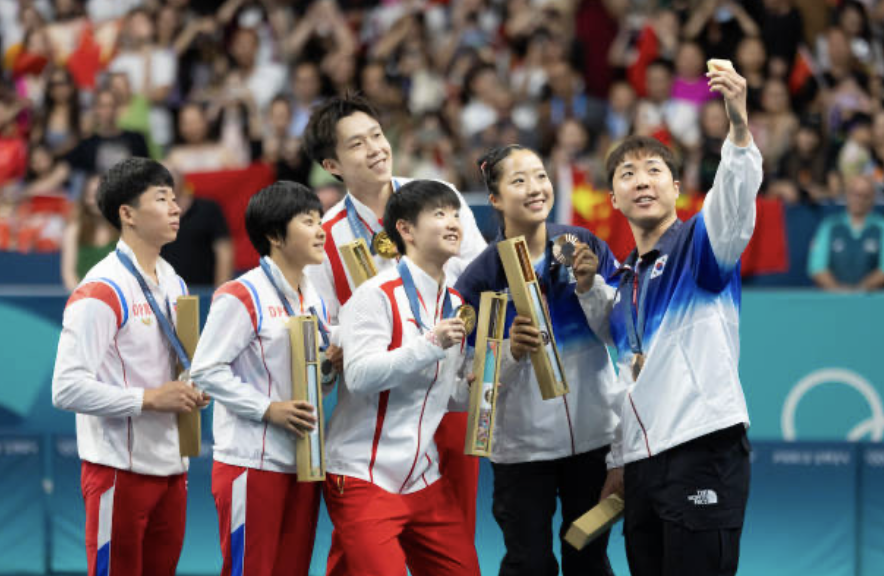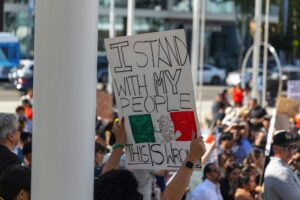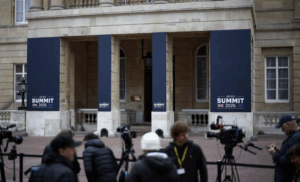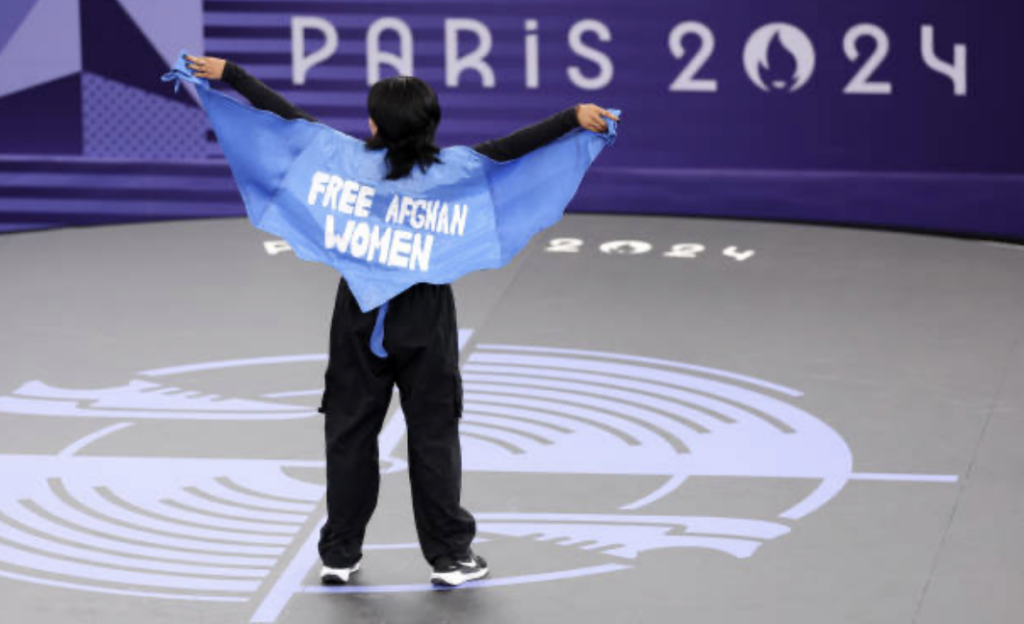The Paris 2024 Olympic Games are fundamentally intertwined with politics. With Heads of State attending the opening and closing ceremonies, nations from across the globe competing in unison, and international broadcasts taking place, the event serves as a platform for showcasing and promoting national interests.
The French Olympiad was no exception to this dynamic, especially given the current global climate. The ongoing war in Ukraine since February 2022, Israel’s relentless bombings in Gaza following the terrorist attacks of October 7, 2023, and the presence of authoritarian regimes in North Korea and Afghanistan all contribute to a global perspective far from be idyllic. Consequently, several geopolitical messages and symbols were inevitably present throughout this two-week event.
Historic selfie between athletes from North and South Korea

It’s widely recognized that South Korea and North Korea share little more than a name. While there was a brief thaw in relations during the 2018 Winter Olympic Games in PyeongChang, marked by a joint parade and the attendance of Kim Yo-jong, the sister of North Korea’s leader Kim Jong-un, the warmth of that moment now feels like a distant memory.
On November 23, 2023, North Korea terminated the 2018 agreement with South Korea, citing a supposed increase in military provocations and the intention to position troops along the military demarcation line. Under its authoritarian government, North Korea imposes severe restrictions on its citizens’ ability to travel internationally. Conversely, South Koreans require special permission to engage in direct interactions with North Koreans.
In this context, the selfie taken by the medalists of the mixed table tennis event is historically significant. Ri Jong Sik and Kim Kum Yong from North Korea, who had been relatively unknown prior to the competition, secured a silver medal, on July 30, after losing to China in the final. South Korea completed the podium, and true to the tradition of these games, the medalists captured a momentous selfie together on the podium, showcasing an unprecedented closeness between athletes from both nations.
“Free Afghan Women”: Manizha Talash disqualified from breakdancing
On Friday, August 9, Manizha Talash made headlines; not for her participation in the inaugural Olympic breakdancing competition, but for her performance in a cape emblazoned with the sentence « Free Afghan Women ».
While her opponent for the day, the Dutch dancer India, supported her stance, the World Dancesport Federation was far less lenient. The 21-year-old, who is part of the refugee team and fled Afghanistan after the Taliban regained control, was disqualified for « displaying a political message on her clothing, » which is against regulations in sports arenas and podiums at the Olympic Games.
Opposed to an Israeli, the Algerian Messaoud Redouane refuses to fight
On Monday, July 29, the Olympic men’s under 73 kg judo competition had a troubling beginning. As anticipated from the draw, Algerian athlete, Messaoud Redouane, did not step onto the tatami for his match. The official reason cited was a failed weigh-in, as he was 400 grams over the limit. However, the unofficial reason relates to the ongoing conflict between Israel and Palestine. Messaoud was scheduled to compete against Israeli judoka Tohar Bulbut, but Algeria has taken a firm stance against Israel, banning entry into the country for anyone holding an Israeli passport or a visa stamp from Israel.
Following this situation, Tohar Bulbut expressed empathy for his Algerian opponent, stating that Messaoud was “a victim of decisions beyond his control.” He recalled a similar experience during the last Olympics against another athlete, Fethi Nourine. “It’s tough because I want to fight and showcase my skills; it’s my profession”, he explained. “I’m sure he also wanted to compete and had worked hard to be there. Often, political disputes overshadow the spirit of the Olympics.”
Islamic regime censors hug between two Iranian athletes
On Thursday, August 9, the podium of the women’s taekwondo competition under 57 kg was the scene of a remarkable and unique moment. After the traditional Olympic medal photo, the four athletes hugged each other to congratulate each other. Finally, Kimia Alizadeh and Nahid Kiani particularly attracted attention. The first, bronze medalist, represented Bulgaria after fleeing Iran four years earlier, in search of much broader freedoms than those granted by the Islamic regime to women. The second, silver medalist, represents Iran.
This image caused a real buzz on Iranian television channels, to the point that the Islamic regime decided to censor this extract. Indeed, Kimia Alizadeh had previously won a bronze medal at the Rio 2016 Olympic Games… for Iran. To justify her departure from her native country, the athlete declared in particular that “the women of Iran are not free. I was forced to do what they wanted, to wear what I was told and to say what I was told. I have been exploited, and I no longer want to sit at the table of hypocrisy, lies and injustice”, particularly denouncing the Islamic government imposed by the mullahs and the compulsory wearing of the veil.










